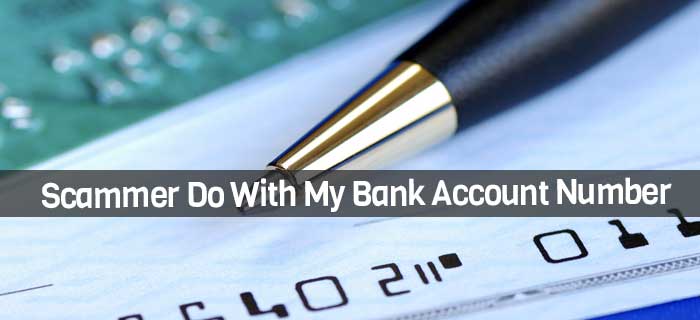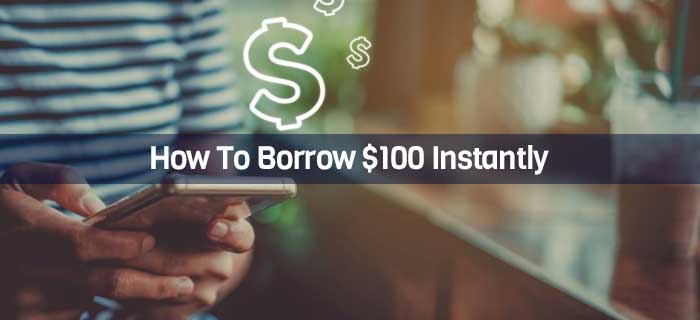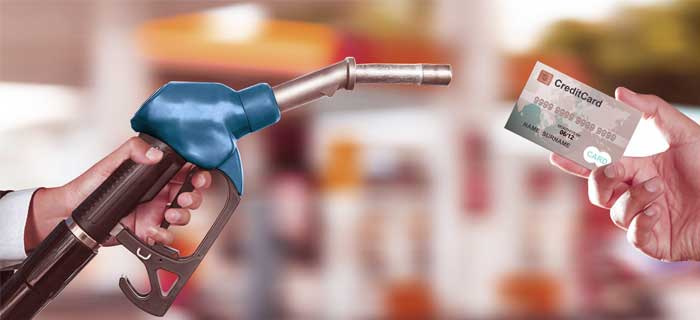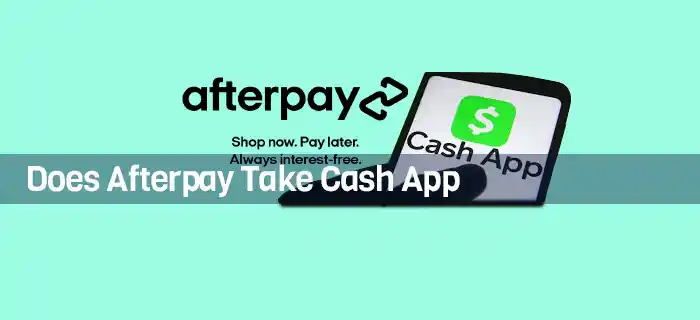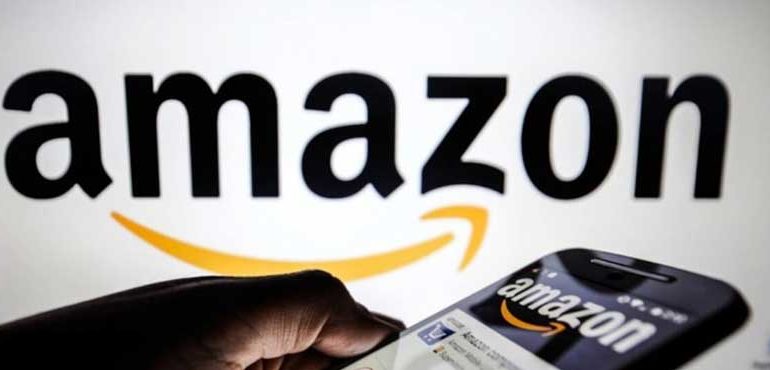Many people need to be made aware when sharing their banking details and wonder what a scammer can do with their bank account number. If you are under any misconception that over-sharing personal banking data will not harm you, it’s time to think over it again.
- Scammers can make unauthorized transactions, ACH transfers, do online shopping, or cash checks using bank account number.
- You can avoid banking scams by safeguarding your personal information, setting up multi-factor authentication, using credit cards/prepaid cards as alternatives and keeping a check on monthly statements.
- You should keep details like username, password, security questions, and record of financial transactions completely private.
…and Much More!
What Can a Scammer do With My Bank Account Number?
Indeed, someone can not take out funds from your account or make an unauthorized transaction with just the bank account number. Still, when combined with other personal information such as routing number, driver’s license, etc., they can misuse your bank account in multiple ways.
Transfer Money Without Your Authorization
Anyone who has access to your account number and routing number can send money from your account without your permission.
When we are worried about losing money from our accounts, most don’t consider obtaining massive funds equally harmful. If suddenly, money has been sent to your bank and you don’t know the source of funds, someone may be setting you up for money laundering or other illegal activities. You should immediately report this to the banking authorities.
Set up ACH Fraud
This is one of the most common types of fraud that can take place if your banking information falls into the wrong hands. ACH transfers only require users to provide their account number and routing number, so any third party can misuse it to set up bill payments, pay for online shopping via your account, or transfer money to any other account unnoticed.
- ACH frauds have been recurrent in the case of commercial banks, but now individuals have also reported unauthorized ACH transfers.
Typically, scammers carry out multiple small money transfers so that their activity does not become evident. By the time these are discovered, a large sum of money has already been lost.
Issue Fraudulent Checks With Your Bank Account Information
Bank account number and routing number are all what a scammer needs to cash a check from your account. Now what they can do with the check has countless possibilities. The fraudulent party can use the check to pay for purchases anywhere, deposit the amount into their own account, or also cash the check.
Carry Out Online Shopping
The number of online retailers that have started accepting bank transfers has rapidly increased. Most stores only require your full name, bank account number, and routing number to complete the money transfer. If the scammer can access this information, they can use your checking account to shop without permission.
Steps To Protect Your Bank Account From Scammers
There are several steps you can take to keep your bank account information safe from online hackers and scammers. We have listed some of the most effective tips below. Take a look!
- Never share your bank account information with anyone except trusted parties.
- Prefer paying through a prepaid or debit card when making purchases online to avoid giving out information about the bank account.
- Only shop through websites that seem reliable and safe. Avoid sites that require you to share personal data, such as your credit card number or PIN.
- Moreover, look for trustworthy identity theft protection services.
- Make sure you have activated multi-factor authentication on your bank account.
- Minimize paper checks as much as possible, as they leave a paper trail and are unsecured.
- Also, choose security questions based on what only you would know.
- Activate additional verification procedures when you link the bank account to third-party sites such as Amazon, Facebook, or mobile wallets.
- Also, use money transfer apps as much as possible, especially if you have to receive funds from an unknown individual.
List of Bank Details That You Should Keep a Secret
You can only keep some of the banking details to yourself since there are many instances, like online shopping or receiving funds from others, where you would be required to share them. However, instead of worrying about what someone can do with your bank account number, there are a few things that you don’t need to provide to any third-party regardless of the online banking activity that you are performing.
- Online banking details like username
- Passwords
- Security Questions
- Records of financial transactions
- Printed bank statements at the end of the month
Extra Reading
Can Someone Withdraw Money With My Account Number?
As mentioned above, scammers can perform ACH transfers using your bank account number to take out checks. So, yes! It is possible that they would take out money from your account with the bank account number only.
These frauds are typically performed on commercial banks that hold large amounts of money. However, scammers often avoid withdrawing a large fund immediately to avoid suspicion. Instead, they take out small amounts that would go undetected.
- In recent years, there has been a sharp increase in online fraud targeting medium—to small bank accounts because they have lesser security protocols and are easier to invade.
One way to avoid this is to constantly check your billing and expenditures. Financial experts strongly recommend that you check your monthly billing thoroughly every cycle.
Can Someone Hack The Account With Just Account and Routing Number?
A hacker gaining access to your bank account and savings is nothing short of a nightmare. Therefore, customers constantly hesitate to provide banking details to others, worrying that it might result in the leakage of sensitive data and hacking issues.
It is true that your account will be hacked if the login details of the online banking app are compromised. However, it is not possible to do so with just the account and routing number. Online accounts are typically safeguarded with a password or PIN, without which scammers can not perform the hack.
Can Personal Information Be Used To Hack Your Bank Account?
Personal information may include your full name, username, password, contact address, contact number, etc. Whether the information is enough to hack your account depends on the type of data.
- Login information would give access to others and allow them to hack your account quickly.
Account hackers can also use spyware or malware to make you download files that let them access your online banking apps. However, most banks have now launched multi-factor authentication to safeguard your account.
You should also opt for security questions, sensitive codes, and email alerts so that even if you share your personal information, no one can access the account without authorization.
When Is It Okay To Provide Bank Account Number and Routing Number to Others?
You would be required to provide an account number to others in many instances. Typically, an account number and routing number are needed to make transactions. Here are a few other examples where you may have to provide bank account numbers.
- Receiving Money in Your Bank Account
When someone sends you money to the bank, they need your account number and routing number for the transaction. The same is true when setting up a direct deposit from the employer. Once you have provided this information to the sender, the transfer will be done within minutes.
- Purchasing Things Online
You can pay for online purchases via a checking account or by providing your account and routing numbers. ACH transfers are standard and should not incur any issues. However, make sure you are using safe websites for online shopping.
- Connecting an Online Bank Account to a Mobile App
Most mobile banking apps and wallets let you link banks and manage finances conveniently. They also permit quick money transfers and deposits. However, users are often asked to share their bank accounts and routing numbers to make this work. This should be safe if you have opened your account with a reliable bank.
- Issuing a Paper Check To Someone
Paper checks sound like a thing of the past, but many Americans still rely on them. However, their use has been discouraged because they leave a paper trail of payments and sensitive information that can be misused.
Typically, paper checks have the account and routing number printed on them. They also contain personal information like a phone number or full name, which you might be uncomfortable sharing with strangers.
The Bottom Line
If you were wondering what a scammer can do with a bank account number, there are several scams that online hackers and fraudulent parties can perform using just your bank account number. Therefore, the only reliable way to avoid such issues is to keep your bank account and other personal information private from someone you know.
- You also need to proactively manage who has access to sensitive data and change passwords if need be.
Bank account scams are common in all parts of the world. Although financial institutes themselves take the responsibility to protect your account, it is also up to you to safeguard against the vulnerabilities of online banking.
Frequently Asked Questions
Is it safe to give someone your bank account number?
Bank account details like the account and routing numbers are generally safe to share. However, you should not share information like username or password. This is because it can easily give access to your online banking app.
What to do if someone has your bank account number?
A bank account number is normally enough to set up ACH transfers or cash a check. Therefore, you should be careful about who you share such details with.
Can someone withdraw money from my account with the account number?
Someone can only withdraw money from your account if they have your account number. However, scammers can use the information to commit ACH fraud or make online purchases.

Cassidy Horton is freelance finance base research writer and published hundred of articles on money, banking, loan and more. Her work is published authority finance site on Forbes, Money Under30, NerdWallet and many other finance brands. Further she is considered financial expert by MSN, LegalZoom & Consolidated Credit.

